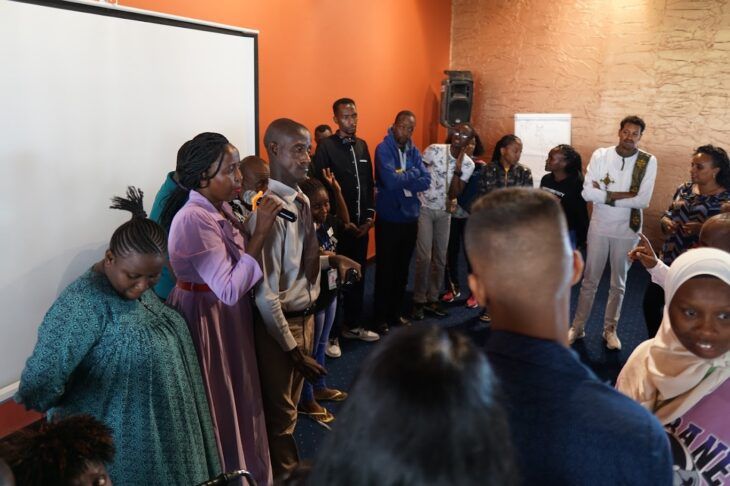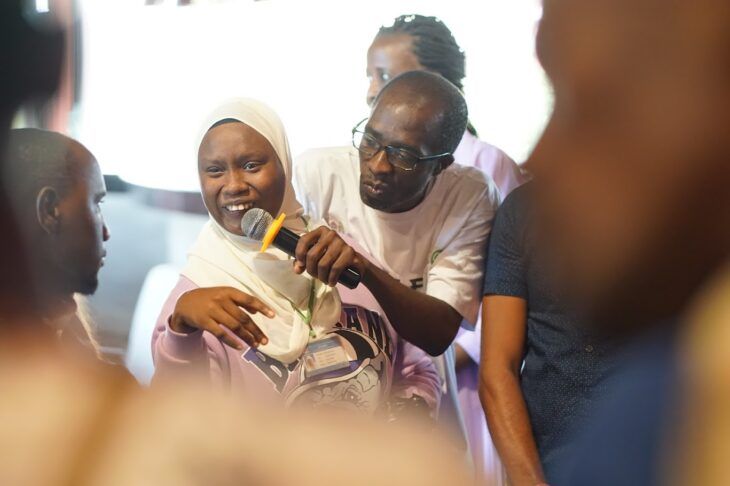Blog
How Self-Advocates are shaping their future in Africa
- Ending discrimination
- Africa
From the 9th to 11th December 2023, self-advocates from 10 African countries gathered in Nairobi, Kenya, for a three-day workshop. Inclusion Africa hosted the meeting.
The workshop aimed to strengthen the self-advocacy movement in Africa. Part of this was through the development of a regional self-advocacy strategy.
Self-advocacy is the ability of people with intellectual disabilities to speak up for themselves and their rights. Across the world, self-advocates are developing their skills to better advocate for themselves.

Self-advocates in Africa face many challenges, such as stigma, discrimination, lack of awareness of opportunities, and limited support. They often have to overcome barriers and fight to be in their communities and societies.
Self-advocates used the workshop as an opportunity to learn from one another, share their experiences and stories, and express their hopes and aspirations.
By sharing these experiences, the self-advocates developed a regional strategy for self-advocacy across Africa.
Self-Advocacy Strategy for Africa
Mark Mapemba led the self-advocates on the third day of the conference alongside self-advocates Jayne Akinyi of KAIH and Samuel Delali Anku of Inclusion Ghana.
Ruth Chihana began by sharing updates on self-advocacy projects in Zambia, while Mark spoke to a recent Empower Us training in Angola.
Mark also presented the results of a survey that revealed the different levels of experience and the common challenges among self-advocacy groups in Africa.

The workshop participants worked together to craft a collective vision and strategy for the self-advocacy movement in Africa. They identified four main goals:
- Talk to each other more to have better relationships
- Make sure that local self-advocacy groups know about what work is happening in the region
- Help more self-advocates to become leaders and have self-confidence
- Have more self-advocates represented in other groups and platforms
The self-advocates also developed plans for each goal, addressing current activities, desired changes, proposed activities, and needed support.
The self-advocates told a story about what the future looks like in Africa.
They envisioned things like:
- “A big network of self-advocates that are connected and working together” – Chantal Gnahoui, Benin, La Chrysalide
- “We have strong leaders at the regional level who make a community, and help us build a movement” – Tigist Meles, Ethiopia, FENAID
- “In 10 years, self-advocates at Inclusion Africa are the strongest in the world” – Mark Mapemba, Malawi, Inclusion International
In 10 years, self-advocates at Inclusion Africa are the strongest in the world
Mark Mapemba, Inclusion International
Beyond the development of a strategy, the workshop also addressed the importance of sexual and reproductive health rights (SRHR) for people with intellectual disabilities. They often face high rates of sexual violence and denial of their rights.
Inclusion Africa is beginning to focus more on SRHR as an important issue for people with intellectual disabilities in the region.
Meetings like these give us a lot of ideas about how we can work together and support our members.
Fatma Wangare Haji, Regional Coordinator for Inclusion Africa, concluded the meeting by sharing, “This is an exciting moment – we have a lot to learn from each other and we will keep communication open.”